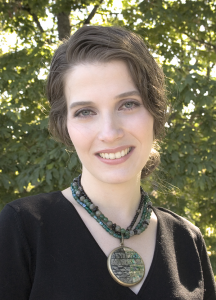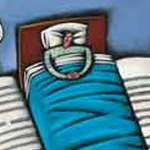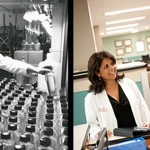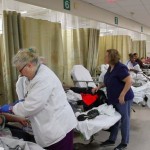PEOPLE OFTEN ASK ME about my most memorable intervention as a pharmacist. As an emergency department (ED) pharmacist, I am uniquely positioned on the front lines of patient care to make important life-saving pharmaceutical interventions for patients.
I have been fortunate to have had many meaningful interactions with patients as both an ICU and ED pharmacist. I have caught some serious drug interactions, put patients on life-saving medications, recommended cost-saving therapies to save patients money, and educated my patients about wellness and proper medication use. However, the experiences that stand out in my memory are not the pharmacologic interventions but the personal ones, such as holding a patient’s hand during a difficult diagnosis or hugging an elderly patient in terrible pain.
A Memorable Intervention
These interactions transform me as a practitioner as much as they do the lives of the patients for whom I care. My most memorable intervention happened during the first week of my first rotation as a fourth-year pharmacy student. Aside from igniting my lifelong interest in critical care and emergency medicine and cementing my desire to practice in this intense and challenging setting, this critical care rotation gave me the opportunity to assist in code situations.
At the end of my first week in the ICU, we had a code blue during rounds. The patient was 19 years old, and her mother was in the room when it happened. I was a student at the time, so what was I expected to do? I wasn’t able to administer medications… my preceptor was doing that. I felt useless in that room with so many expertly moving parts, and my preceptor didn’t need any help, so I looked at the patient’s mother.
Everyone was so focused on saving the patient that they didn’t notice that the girl’s mother was standing at the periphery of all of the action, crying. She was shaking, so I brought in a chair and wrapped some warm blankets around her. Then I crouched down beside her and began explaining what the team was doing and what the telemetry meant, so she would not be so frantic about what was happening to her daughter. When it got to the point when I didn’t know what else to say or do, I just put my arm around her and prayed with her.
We couldn’t save her daughter. But the mother came up to me after the code and threw her arms around me, thanking me for my kindness. I just held her while she cried, not knowing what else I could say or do. We stood in the hallway for a long time like that, until the chaplain came.
The Ripple Effect of Small Actions
As a student with little experience and no real ability to intervene medically to save the patient, I had thought my contribution was trivial compared to the actions of the skilled doctors, nurses, and my preceptor who labored in the room that day.
What I didn’t realize was that my small actions had a ripple effect on those around me. In the weeks following that code, several people stopped me in the ICU to tell me that they remembered me from that code and what I had done for the patient’s mother. One of the nurses told me that I made her remember why she went into health care in the first place.
What I didn’t realize was that my small actions had a ripple effect on those around me.
That code became an important catalyst for my journey as a clinical practitioner because it taught me something very valuable: Every action has a ripple effect. Even when we feel invisible—and pharmacy can sometimes feel like an invisible hand guiding medication usage—actions matter. People matter.
Regardless of whether we are students or seasoned practitioners, I learned that we can never underestimate the power that our actions have on others. Waves can arise from the smallest of ripples. The tides we will experience tomorrow begin, in some small way, from the ripples we make today.
–By Elva Angelique Van Devender, Ph.D., Pharm.D., BCPS, Clinical Pharmacist, Legacy Good Samaritan Medical Center, Portland, Oregon









 If you want to contribute tutorials, news or other stuff please contact us. We pay 150 for each approved article.
If you want to contribute tutorials, news or other stuff please contact us. We pay 150 for each approved article. Consectetur adipisicing elit. Sed do eiusmod tempor incididunt ut labore.
Consectetur adipisicing elit. Sed do eiusmod tempor incididunt ut labore. This site uses valid HTML and CSS. All content Copyright © 2010 Newscast, Inc
This site uses valid HTML and CSS. All content Copyright © 2010 Newscast, Inc If you like what we do, please don't hestitate and subscribe to our
If you like what we do, please don't hestitate and subscribe to our